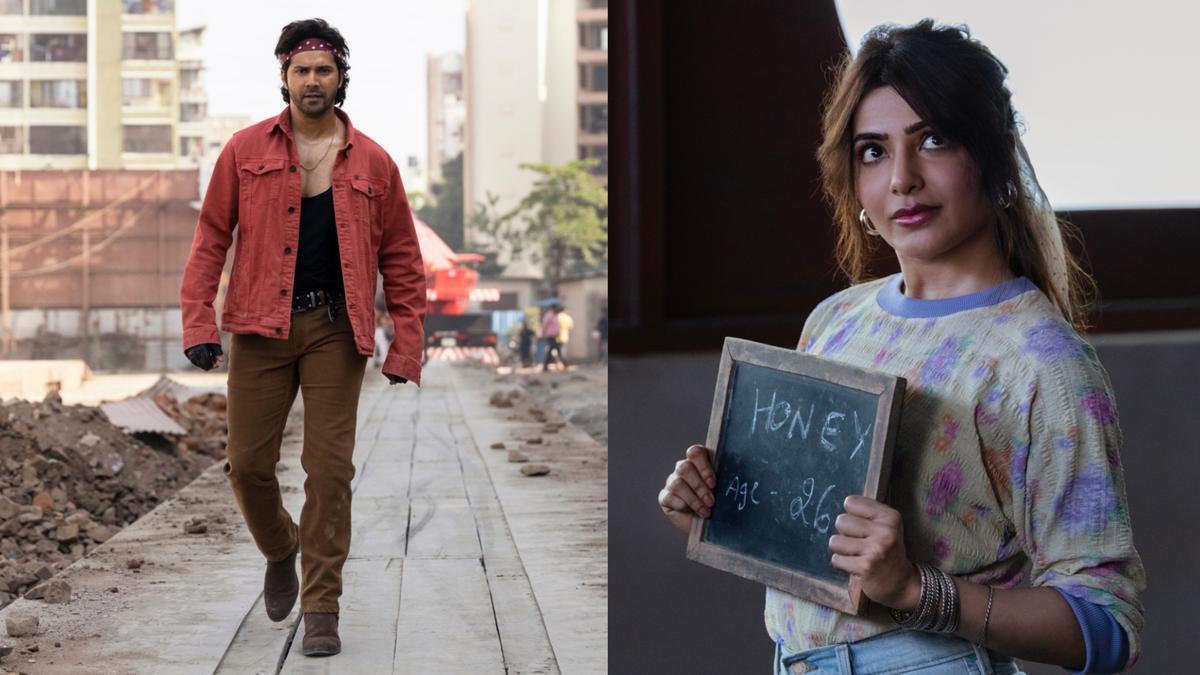
As the film industry celebrates the 30th anniversary of “Pulp Fiction,” a new Indian spy series, “Citadel: Honey Bunny,” emerges from the dynamic duo of directors Raj Nidimoru and Krishna D.K., popularly known as Raj & DK. This series is set against the vibrant backdrop of the 1990s, echoing the era where Tim Roth affectionately referred to Amanda Plummer as ‘Honey Bunny’ in the Quentin Tarantino classic. Unlike the infamous diner heist in “Pulp Fiction,” “Citadel: Honey Bunny” trades café larcenies for perilous missions filled with action and espionage.
Frontlining this exhilarating series are Bollywood’s fan-favorites, Varun Dhawan and Samantha Ruth Prabhu. This show serves as both a spin-off and a prequel to the American action series “Citadel,” orchestrated by the renowned Russo brothers. The franchise promises to unfold across various international settings, including chapters in India, Italy, and Mexico, each with its unique cultural flavors.
“Citadel: Honey Bunny” maintains a distinct “Raj & DK” flavor with its over-the-top plot and compelling narrative style. The series dives into the gritty life of Bunny, portrayed by Varun Dhawan, a Bollywood stuntman who ropes in the ambitious actress Honey, played by Samantha Ruth Prabhu, into a grandiose spy operation. Many years later, the pair, now an estranged couple, must join forces once more to safeguard their daughter, Nadia. Intriguingly, Nadia is portrayed in adulthood by Priyanka Chopra Jonas in the original “Citadel” series, providing an enigmatic connective thread across the series.
A conversation with the team reveals their commitment to preserving the ‘Indianness’ at the heart of “Honey Bunny.” Varun Dhawan elaborates on the distinctive style crafted by stylist Ameira Punvani, reflecting the flamboyant fashion of the era. “I sport a leather jacket, high boots, high-wasted pants, and even a mullet. There were references from Mel Gibson in ‘Lethal Weapon’ and Sanjay Dutt from the 90s,” Varun shares with enthusiasm.
Meanwhile, Samantha Ruth Prabhu reminisces about the emotional depth her character explores. “These moments weren’t always scripted. Raj & DK, along with Sita R Menon, crafted scenes that pushed my character through various emotional states.
. The actress’s struggles are just a stepping stone in the broader journey Honey takes over the series. I viewed these parts as breathers between the intense action scenes,” Samantha reflects.
Raj Nidimoru offers insights into the creative autonomy provided by the Russo brothers, stating, “We have always leaned towards original storytelling instead of adapting existing ideas. The American production system is often rigid, but with ‘Citadel,’ there were only basic directives. We chose a setting vastly different from the tech-driven narratives of the American original.”
The series harnesses dialog and drama to enhance the storytelling, evident in a scene Varun describes: “There’s an extended exchange where I introduce Samantha’s character to Baba, played by Kay Kay Menon. This continuous dialog without many cuts allows emotional engagement and depth.”
Samantha speaks about one of her most challenging sequences, a dynamic car chase requiring precise choreography. “We filmed it towards the end, assuming it would be straightforward after all the elaborate stunts already shot. But synchronization proved to be a formidable task,” she explains, hinting at the dedication behind each action scene.
Raj & DK’s vision emphasizes cultural uniqueness and narrative depth, echoing series like “Shogun” which immerse audiences in their cultural setting. Varun argues for the necessity of incorporating native culture to distinguish Indian series globally. “Western audiences already have multifaceted shows; it’s our culture and narrative that will captivate them,” he asserts.
In closing, the team discusses the under-marketing of innovative Indian shows. Raj Nidimoru voices his frustration, “Indian shows are out there, waiting to be discovered. With better exposure, any of our shows could break into the global arena.”
As “Citadel: Honey Bunny” premieres, it promises an intoxicating blend of espionage, emotion, and the unmistakable flair of 90s Indian cinema. The show exemplifies the global storytelling possibilities inherent in Indian narratives, all while crafting its distinct place within the wider “Citadel” franchise.












